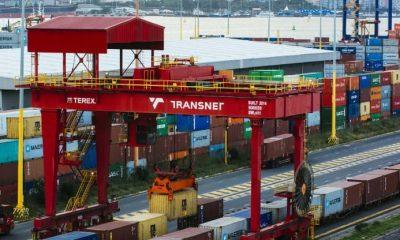Business
Dark Clouds Over South Africa’s Mining Industry as Challenges Mount

South Africa’s mining industry has long been a pillar of the economy, contributing around 6% of the country’s GDP and employing nearly half a million people. Yet, despite its significance, the sector is grappling with a series of challenges that threaten its stability and growth.
The latest Stats SA data shows a troubling trend—mining employment declined by nearly 10,000 jobs in 2024, with retrenchments in the platinum group metals (PGMs) sector leading the losses. Low metal prices, crumbling infrastructure, and regulatory hurdles have placed immense pressure on mining companies.
The South African Revenue Service (SARS) has also reported a steep drop in Company Income Tax (CIT) revenue from mining companies due to falling commodity prices. Combined with power outages and Transnet’s ongoing logistical failures, the industry is struggling to remain competitive.
Infrastructure Failures Crippling the Sector
The Minerals Council South Africa, which represents 90% of the country’s mineral production, has highlighted several factors impeding growth:
- Freight and rail inefficiencies – Transnet’s failure to transport minerals efficiently has forced mining companies to rely on costly trucking.
- Power supply instability – Eskom’s ongoing load-shedding and soaring electricity prices are increasing operational costs.
- High crime levels – Illegal mining and theft have become major security concerns for the industry.
- Regulatory hurdles – Lengthy and unpredictable licensing processes hinder investment in new mining projects.
The impact of these challenges is visible across the industry. Kumba Iron Ore, South Africa’s largest iron ore producer, reported R6 billion in losses due to Transnet inefficiencies, while the Reserve Bank estimates that road transport for coal exports costs companies up to $70 per ton, compared to $11 per ton via rail.
ArcelorMittal Shutdown Highlights Industry Fragility
A major indicator of the mining industry’s struggles is ArcelorMittal South Africa’s decision to shut down its long steel operations, putting 3,500 jobs at risk. The ripple effect across the steel supply chain could lead to job losses of up to 100,000 people.
CEO Kobus Verster attributed the closure to high production costs and a lack of government intervention to protect the local steel industry. Competing markets, he explained, benefit from export taxes and government subsidies, giving them a 40% cost advantage over South African producers.
Similarly, Thungela Resources CEO July Ndlovu has criticized South Africa’s slow and inefficient regulatory processes, warning that without urgent reforms in licensing and investment, the industry will continue to decline.
Some Optimism for 2025, But Uncertainties Persist
While the outlook remains challenging, there is cautious optimism for 2025. The Minerals Council South Africa is hopeful that:
- Transnet’s freight rail improvements could raise transported volumes to over 170 million tonnes (up from 160–165 million in 2024).
- Energy supply could stabilize, reducing Eskom-related disruptions.
- Government infrastructure investment could help address municipal service failures impacting mining communities.
However, global economic risks remain. Geopolitical tensions, trade disruptions, and weaker industrial demand could keep commodity prices low, especially for industrial metals.
If these issues are not addressed, South Africa risks further economic contraction, job losses, and declining tax revenue, making recovery even harder.
Mining has long been the backbone of South Africa’s economy, but its survival now depends on urgent reforms and investment in infrastructure, energy, and regulation. Without decisive action, the country faces not only a shrinking mining sector but also wider economic instability.
Will the government and industry leaders rise to the challenge, or will South Africa’s mining industry continue to decline?
Follow Joburg ETC on Facebook, Twitter , TikTok and Instagram
For more News in Johannesburg, visit joburgetc.com


























